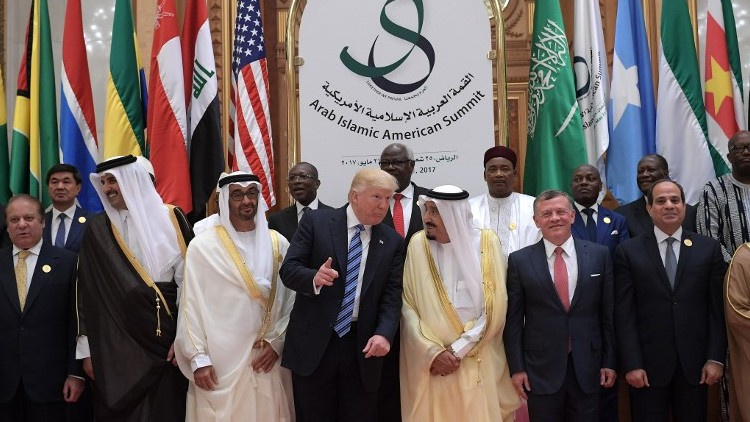Arab NATO Exchanging Security by Economic and Financial Issues: Shireen Hunter

Shireen Tahmaasb Hunter, a professor of political science at Georgetown University, says that “At least since the mid1970s, there has been a tacit cooperation among Persian Gulf Arab states and the West, including America.”
“The basis of this cooperation has been the understanding that, in exchange for American security umbrella, the Gulf states would be more cooperative on economic and financial issues , including the supply and price of oil,” Hunter says.
She adds the recent developments such as Arab NATO are the “continuation of this trend, namely security in exchange for economic and financial gain.”
Following is the text the interview:
Q: Washington has announced the formation of a military alliance in the Middle East against Iran, with the participation of Saudi Arabia, UAE, Egypt, Jordan and Bahrain, which is scheduled to be introduced in the United States soon. Will this coalition be considered as a real coalition or a military organization?
A: Coalitions whether military or political are informal arrangements, and are not embodied in specific institutions. By contrast, military alliances have more formal institutions. The best example of such an alliance is The North Atlantic Treaty Organization (NATO). During the Cold War, the Warsaw Pact was another example. At the moment it is not clear whether the United States intends to form a formal military alliance with Arab states or to continue with informal cooperation that has existed for some time. If it decides on a formal alliance, then some form of institution would be required to manage the alliance.
Q: Due to the failure of previous coalitions against Iran, such as the Saudi or the Gulf Cooperation Council alliances against Iran, How is the fate of the current U.S.-led coalition against the Islamic Republic of Iran assessed?
A: Thus far, the anti-Iran coalitions have been informal. Even so, they have created some problems for Tehran. For example, they have contributed to Iran's regional isolation and might have prevented the normalization of its relations with Egypt and Jordan. A formal military alliance most likely would be a greater challenge, especially in case of a military confrontation between Iran and the United States.
Q: Why is it said that the coalition will be formed three weeks before sanctions against Iran?
A: I believe this a coincidence. However, it could be part of a strategy of applying greater pressure on Iran on several fronts.
Q: Due to the policies of Donald Trump, it seems the U.S.-Arab military alliance is formed to extort from Arab countries especially through spread Iran phobia. What do you think about this?
A: At least since the mid1970s, there has been a tacit cooperation among Persian Gulf Arab states and the West, including America. The basis of this cooperation has been the understanding that, in exchange for American security umbrella, the Gulf states would be more cooperative on economic and financial issues , including the supply and price of oil. The Persian Gulf states have always felt insecure vis a vis their larger neighbors such as Iran and Iraq before the U.S. invasions. Therefore, they have welcomed cooperation with the West. By contrast, Iran, even before the revolution, has always argued that only regional states should have the responsibility for Persian Gulf security. The recent developments are the continuation of this trend, namely security in exchange for economic and financial gain.
Q: On the other hand, the current military alliance is with the participation of the Air Force and the Navy. Although the coalition needs the Land Army to succeed. How is this issue evaluated?
A: If the alliance is for deterrence purposes then naval and air forces might be sufficient. Army is needed in case of a land offensive. However, if the current talks are to be translated into alliance building land forces would also become part of its structure.
Source: Tehran Times

